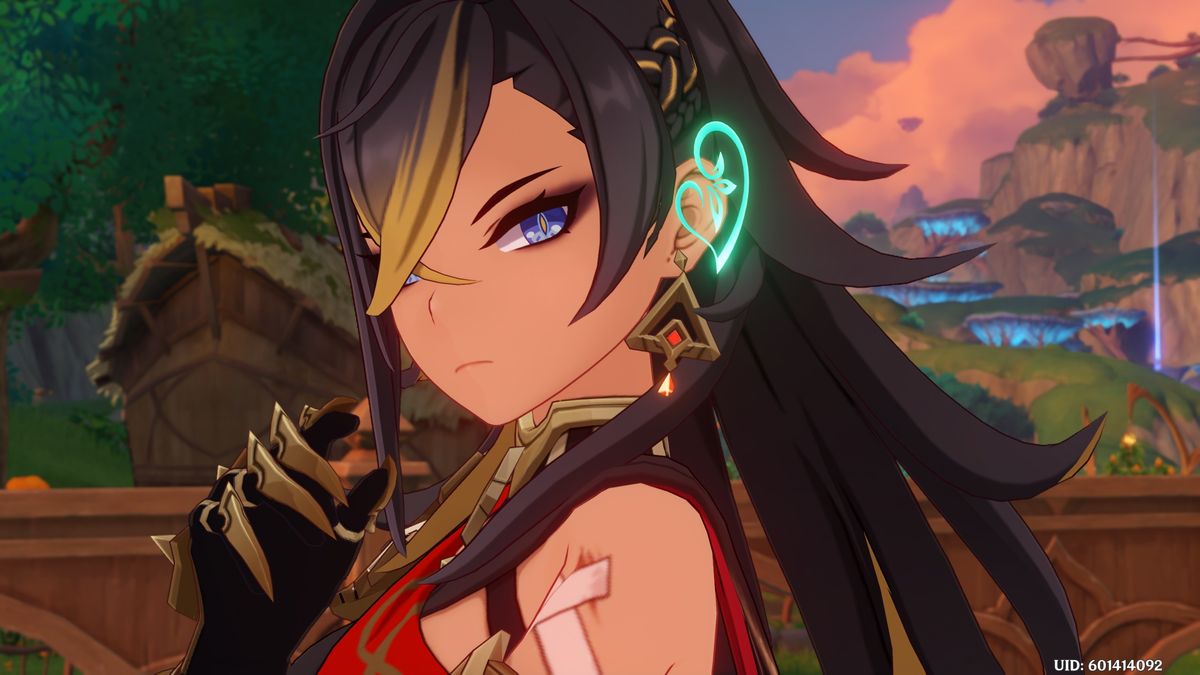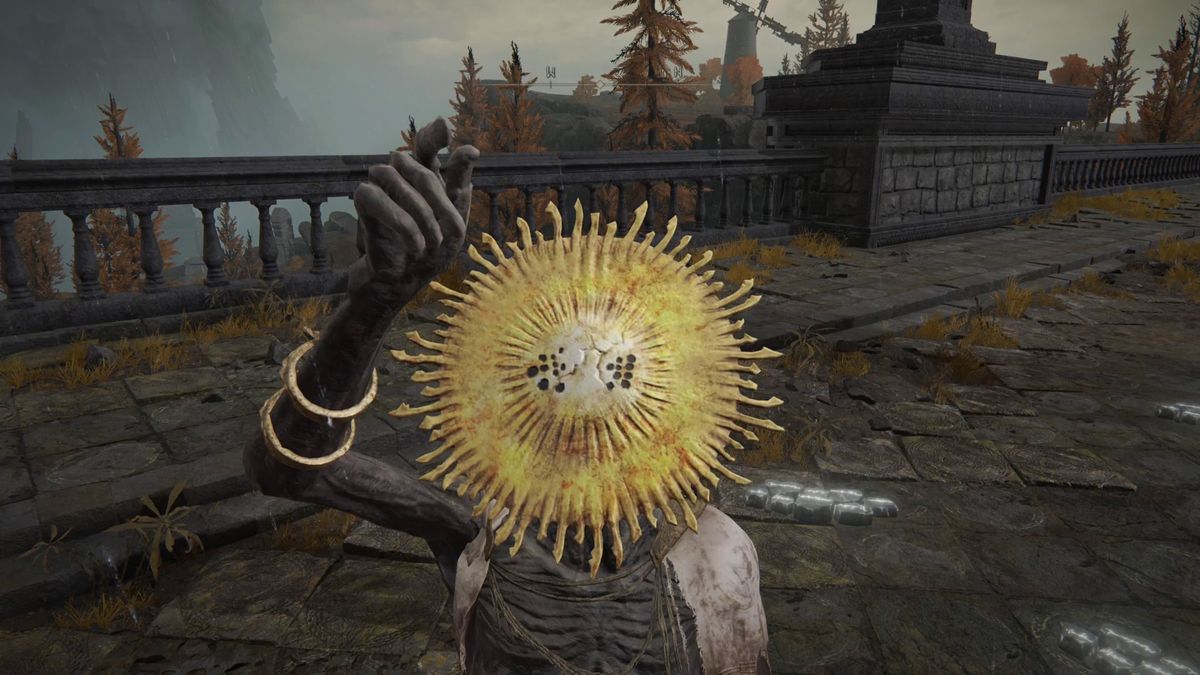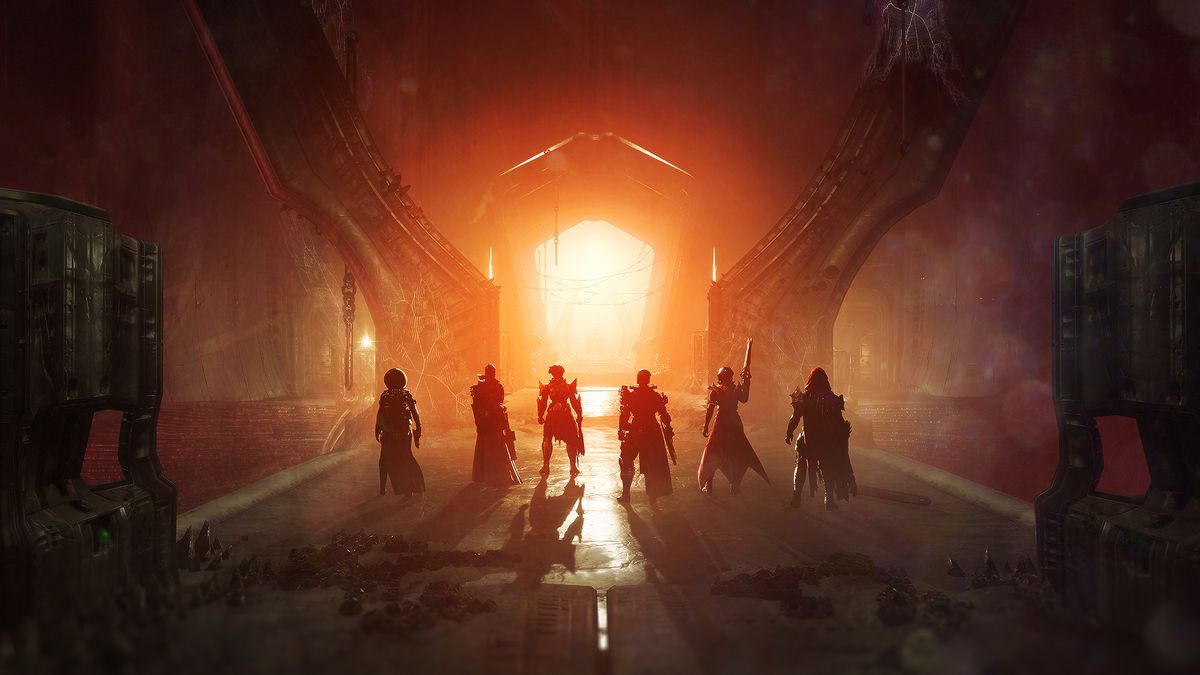This November 2021, the video-game industry turns 50 years old. To celebrate this landmark moment in gaming history, the Golden Joystick Awards – the world’s longest-running public-voted gaming awards show – has asked you to vote for your Ultimate Game of All Time. The winners will be revealed in our special show on Nov 23, on Twitch (opens in new tab), YouTube (opens in new tab), Twitter (opens in new tab), Facebook and more streaming platforms.
By its very nature, attempting to choose one game that stands above the 1.1 million titles released in the last 50 years is riddled with complications, to put it mildly. We doubt everyone will agree with our shortlist of 20 titles, let alone what the world votes as the winner.
We’ve endeavoured to make the shortlist selection process as rigorous and scientific as possible, given the hugely subjective nature of choosing a ‘best’ game. We outline this process below, plus explain the judging criteria in more detail. It won’t necessarily make everyone agree with the shortlist… but it will at least explain the rationale.
Why are we celebrating 50 Years of Games?

The world’s first commercially available video game: Computer Space, released in November 1971. As the first coin-operated arcade machine, it represented the first time a videogame was ever played in exchange for money: the birth of videogames as a commercial industry.
On November 23, 2021, the Golden Joystick Awards will celebrate this momentous milestone in gaming by uniting our iconic brands and experts with the gaming industry’s most beloved creators in a special show that will honour our industry’s 50th anniversary. The show will culminate by announcing the winner of the Ultimate Game of All Time, as voted for by the public.
How did you decide the voting shortlist for Ultimate Game of all Time?

The process began by narrowing the 1.1 million or so games released since 1971 into a manageable long list of around 150 games which are universally recognised as being among the best games of all time. The Golden Joystick Awards has been awarding games for 39 of these years (since it launched in 1983), and could draw on its own pool of previous winners and noted nominees. These previous winners of our coveted Ultimate Game of the Year awards were combined with top 100 lists from Edge magazine, the respected industry bible launched in 1993, and Retro Gamer, the world’s leading Retro Games magazine. Duplicate entries were eliminated to create a long list from the following sources.
- Golden Joystick Awards – previous Ultimate Game of the Year winners
- Edge magazine: The 100 Greatest Videogames
- Retro Gamer: Top 100 Games of All Time
This long list was then shared with our judging panel – as outlined below – who were asked to come up with their personal list of top 20 games ranked in order of preference.
How did you assemble a judging panel for the Ultimate Game of all Time?

The Golden Joystick Awards assembled a judging panel of industry experts and luminaries, including Katsuhiro Harada (Tekken series, general manager), Debbie Bestwick MBE (Team17), Gary Penn (DMA Design, Grand Theft Auto), Keith Stuart, Keza MacDonald (The Guardian), Shahid Ahmad (former lead of Sony’s Strategic Content Division) and journalists from gaming brands including Edge magazine, Retro Gamer, GamesRadar and more Future titles.
Each judge’s top 20 shortlist was tabulated, accounting for their personal rank of each game, to produce a final shortlist of 20 games.
What was the judging criteria for Ultimate Game of all Time?

Judges were asked to consider a number of key factors when assessing their list of the top 20 games of all time:
- Critical Reception – how was the game reviewed upon release, and / or later re-evaluated by critics?
- Legacy and Influence – what role did the game play in influencing the industry to follow. For example, launching a new genre, spawning a series of copycats, or changing the way we think about games. Full stop.
- Commercial Success – Did the game sell? How many people have played and enjoyed it? This isn’t a critical factor when it comes to assessing a game’s true value, but neither can it be completely overlooked.
- Social Impact – How did the title change the conversation around video-games? What was its cultural impact? How did it affect people in the real world?
- Subjective Interpretation – We asked experts across various parts of the industry for their diverse, and personal, view on why some games deserve to be elevated above others. Sure, you know why a certain game is acclaimed, but why do you love it? What aspect of the game deserves to be uniquely celebrated?
As a result, the shortlist represents a diverse selection of games spanning eras and genres that had the X-Factor, that little sprinkle of magic, that means that have stood the test of time. Some of the shortlisted titles aren’t even – technically – brilliant games, at least not from a design perspective, but transcended their limitations to burn bright in the memory.
Why didn’t you use another voting system and why are we only allowed to vote on 20 games?
Why 20 games? The same question could be applied to 25, 30… 50 games. There are so, so many brilliant games, that a shortlist will – by definition – almost certainly exclude some all-time classics and personal favourites. The point of capping the shortlist to 20 titles is to provoke the conversation about the difficulty of the task, and re-examine the factors that elevate a game from merely excellent, to something more timeless. A classic. Or a pivot point, that changed the shape of gaming history. Games can be art, but games are – at the risk of sounding glib – games… and this is a uniquely evolving interactive medium. What are the stepping stones that brought us to where we are today?
Perhaps a more transparent, and some might argue democratic, way to assess an Ultimate Game of All Time vote, would be a bracketing system, like a football knockout tournament where the public are invited to vote in a series of knockout rounds to decide a winner. This approach has its merits, but almost invariably becomes a popularity contest subject to recency bias (“This great game I played last week is almost certainly the best game ever!”), and a function of its voting audience e.g. if voters skew younger, older games tend to lose out.
Our approach attempts a hybrid system which curates a shortlist based on a diverse panel of experts and their unique perspectives with the democratic transparency of a public vote. Which is a lot of words to say: we’ve really, really thought about the best way to do this, but a lot of people are almost certainly going to be unhappy with the results.
Ultimate Game of All Time – Full Shortlist
- Minecraft
- The Last of Us
- Doom (1993)
- Tetris
- Super Mario 64
- Street Fighter II
- Space Invaders
- Portal
- Pokémon GO
- Super Mario Kart
- Grand Theft Auto V
- Super Mario Bros. 3
- The Legend of Zelda: Breath of the Wild
- Halo: Combat Evolved
- Dark Souls
- Metal Gear Solid
- Half-Life 2
- Call of Duty 4: Modern Warfare
- Pac-Man
- SimCity (1989)
Woah, wait, why is that game included? It’s not even the best in the series?

The judges repeatedly faced this challenge: how many titles from a particular franchise should we include? How do you assess which game from a particular series deserves elevation above all others? These decisions were long-debated – to a depth you might not believe – but by leaning into the judging criteria listed above. Quite often, a game was chosen that’s not even *technically* the best in its own series.
For example, how do you pick the ‘best’ Metal Gear Solid game? Well, it’s Metal Gear Solid 3… based on critical reception, and in terms of its design… but Metal Gear Solid on PSone invented the stealth genre, heralded a new era of cinematics, and broke the fourth wall, redefining our relationship with video-games. Metal Gear Solid 2 was the un-sequel, a defiant FU to fans expecting more Solid Snake, a work of political commentary 15 years ahead of its time. It’s not like MGSV was bad. Mechanically, it was the series’ pinnacle.
You can appreciate the difficulty. Ditto Pokemon (no one is making a case for Pokemon Go as a design masterpiece, but in terms of its cultural impact and personal significance to its community of players…). Don’t even get us started on Mario Kart (Surely SMK8 is best, but it was a sublimation of what came before). Super Mario is a 40 year-old icon whose games have spanned genres, if not defined genres.
Portal 2 is better than Portal. But how many games featured portal guns – or put puzzling front and centre in an FPS – before Valve’s breakout classic?
We could go on and on, but the judges faced down all these conversations to present their personal top 20 games that we have tabulated into the shortlist you see today.
Watch the Golden Joystick Awards on November 23 to see which game wins your vote for the Ultimate Game of All Time and Best Gaming Hardware of All Time
 Games News games, movies and TV you love.
Games News games, movies and TV you love.



